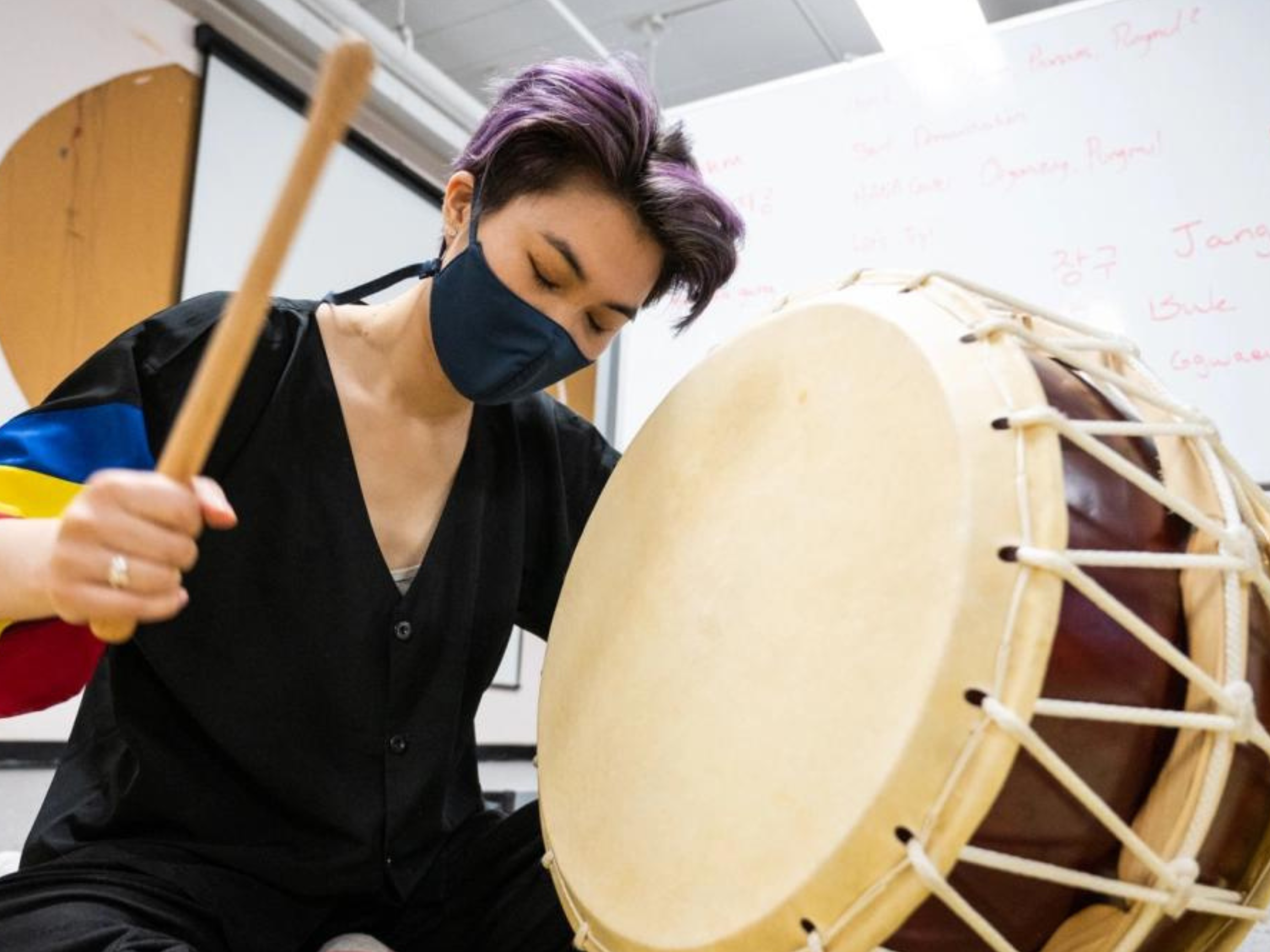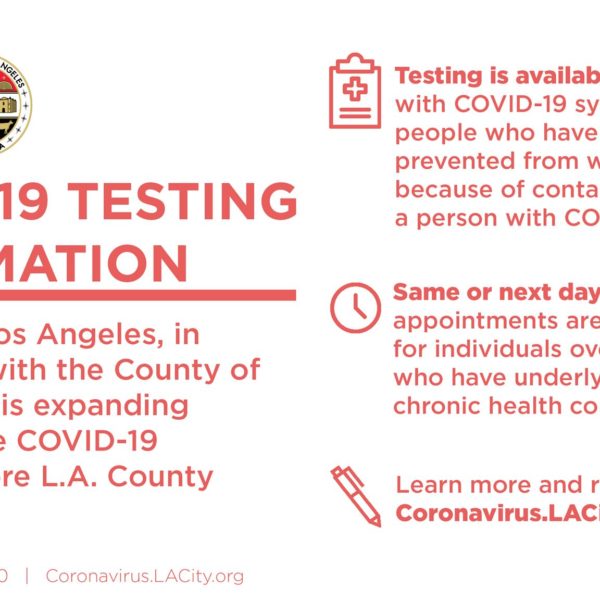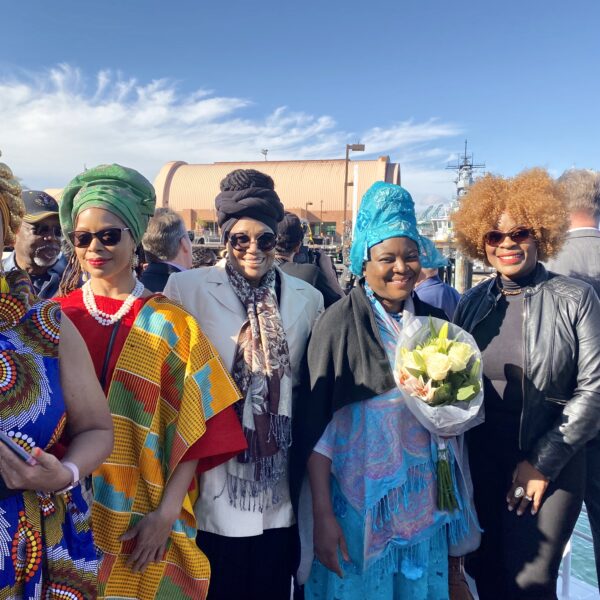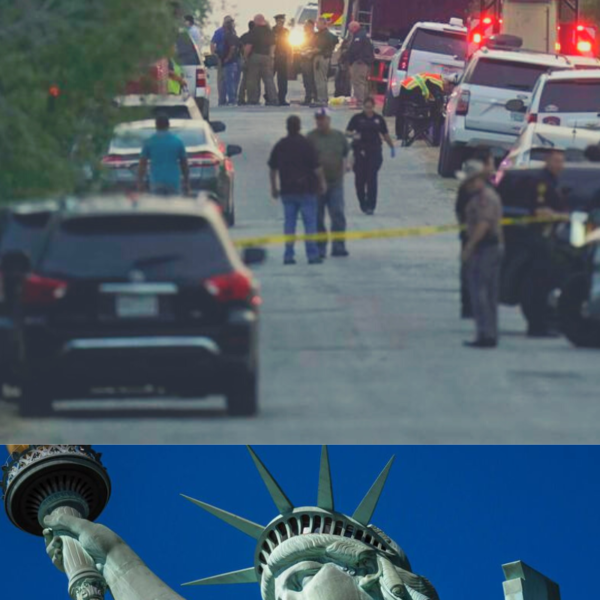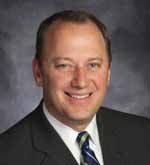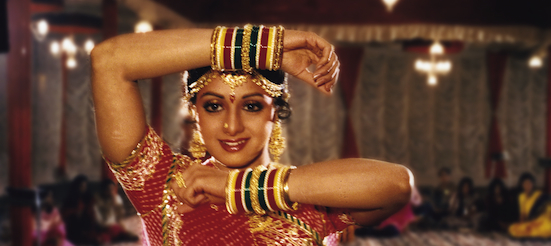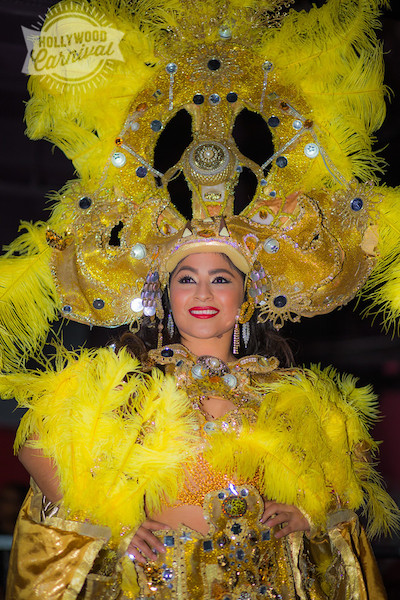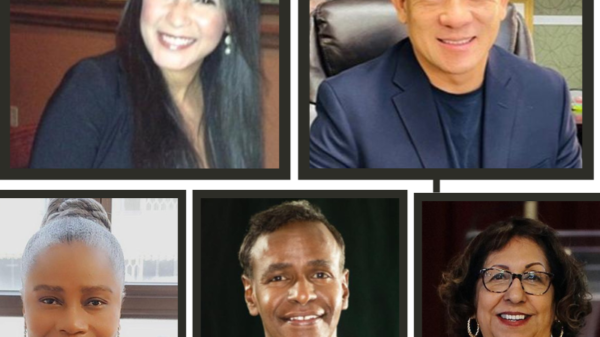Nonprofit Hana Center wants to get more people involved in their work around immigration and racial justice by teaching more classes in Pungmul, a drumming style used in protests.
Magazine, The Immigrant Experience
IRVING PARK — An Asian American and immigrant rights nonprofit is opening its doors to teach neighbors traditional Korean folk drumming that organizers often use in their activism.
Hana Center, 4300 N. California Ave. in Irving Park, provides services to address needs related to citizenship and immigration, housing and more.
The organization also teaches classes in in the Korean folk style Pungmul using instruments like the janggu, a double-sided drum shaped like an hourglass, community engagement coordinator Won Joon Lee said.
The drumming style originated with Korea’s pre-industrial farming culture and evolved into a tool groups like Hana use in demonstrations, protests and vigils about immigrant rights, anti-racism and other human rights.
The group led its first open-to-the-public class on the drumming style this summer. They plan to continue classes and accept new students. Organizers said they hope such programs will help neighbors and other community groups get more involved with the center and its causes.
“Pungmul is very loud and we create quite a ruckus. That’s the whole point. To be able to draw attention to ourselves in both a cultural and political way,” Hana drum instructor Inah Jeong said. “Korean immigrants, no matter what brought them to the United States, are able to relate through this heritage and march among other immigrants in Chicago advocating for immigrant justice and citizenship for all.”
‘It’s really easy to converse in music’
Pungmul is a folk tradition with deep roots in Korean history. During the Japanese occupation of Korea between 1910 and 1945, public gatherings were banned with the exception of music performances, which made Pungmul a form of resistance, Lee said.
It had a resurgence in the ’80s when groups used the drums during mass protests demanding democratic reforms and a removal of the military dictatorship that had been in charge of the country, Hana’s Executive Director Inhe Choi said.
“In the ’80s people in Korea really started to reclaim their culture,” Choi said.
The Hana Center leaders took different paths to learning the tradition.
Lee grew up in South Korea and learned Pungmul history and techniques in elementary school, he said. He stopped taking formal classes when he came to the U.S. but retained the different types of drum beats he was taught as a child as he got older, he said.
“It just stuck with me. I sometimes can’t believe that I haven’t forgotten these beats over the course of all these years,” Lee said.
As a Korean adoptee, Jeong said she was excited about connecting with her Korean heritage when she attended University of Minnesota. She met a freshman involved in a Korean percussion group that uses the same instruments as Pungmul, “diving headfirst into this Korean traditional music that I had no exposure to growing up,” Jeong said.

